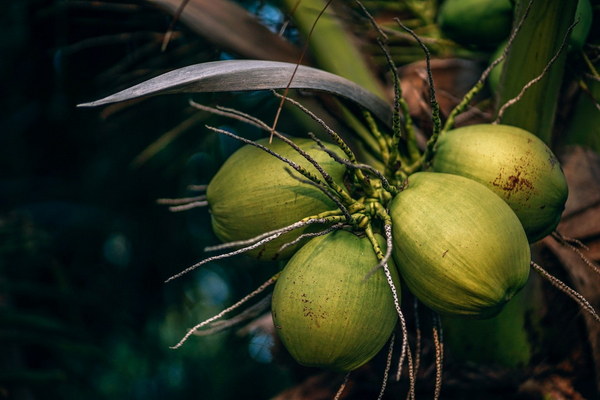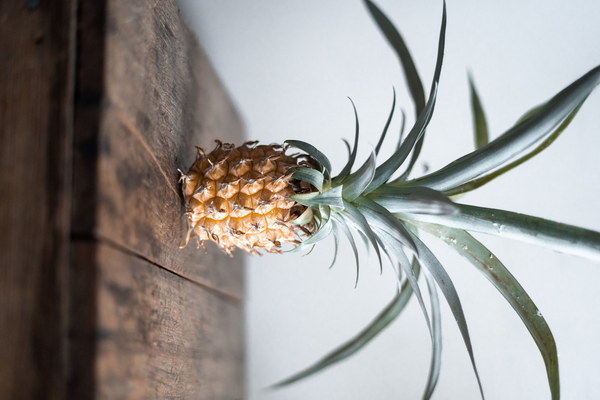Boosting Fertility The Power of Blood and Qi Supplementation
In the realm of fertility, traditional Chinese medicine (TCM) offers a unique perspective and array of treatments. One such treatment that has garnered attention is the concept of blood and Qi supplementation. This article delves into how TCM views infertility and the role of blood and Qi in the reproductive process, and explores the potential benefits of incorporating blood and Qi supplementation into fertility treatment plans.
Infertility, a term used to describe the inability to conceive after one year of regular, unprotected sexual intercourse, affects millions of individuals worldwide. While modern medicine has made significant strides in treating infertility, TCM offers a complementary approach that focuses on balancing the body's energy, or Qi, and blood flow.

In TCM, infertility is often linked to imbalances in the body's Yin and Yang, which are complementary forces that maintain harmony and balance. These imbalances can result from various factors, including stress, poor diet, environmental toxins, and genetics. By addressing these root causes, TCM aims to restore balance and enhance fertility.
One of the primary focuses in TCM is the concept of blood and Qi. Blood, or Xue, is considered the substance that nourishes the body and supports its functions. Qi, or Chi, is the life force that animates the body and maintains its balance. Both blood and Qi are essential for fertility, as they play a crucial role in the reproductive process.
When blood and Qi are deficient or imbalanced, it can lead to infertility. For example, blood deficiency can result in menstrual irregularities, heavy or light periods, and even amenorrhea (absence of menstruation). Qi deficiency, on the other hand, can cause fatigue, weakness, and a decreased libido. In both cases, the body's reproductive system may be affected, leading to difficulties in conceiving.
Blood and Qi supplementation in TCM involves a combination of herbal remedies, dietary adjustments, and lifestyle changes. Here are some key aspects of this approach:
1. Herbal Remedies: TCM practitioners may prescribe a blend of herbs tailored to the individual's specific needs. Common herbs used in blood and Qi supplementation for fertility include Angelica sinensis (Dang Gui), Rehmannia glutinosa (Shu Di), and Codonopsis pilosula (Dang Shen). These herbs are believed to nourish blood, enhance Qi, and support the reproductive system.
2. Dietary Adjustments: A well-balanced diet is crucial for fertility. TCM suggests incorporating foods rich in iron, vitamins, and minerals to nourish blood and Qi. Examples include dark leafy greens, nuts, seeds, and legumes. Additionally, avoiding cold and raw foods, which are believed to hinder blood circulation, may be recommended.
3. Lifestyle Changes: Regular exercise, stress reduction techniques, and adequate sleep are essential for maintaining a healthy blood and Qi balance. TCM also emphasizes the importance of emotional well-being, as negative emotions can affect the body's energy flow.
Research has shown that TCM can be a viable option for individuals struggling with infertility. A study published in the Journal of the American Board of Family Medicine found that women who received TCM treatments, including blood and Qi supplementation, had a significantly higher pregnancy rate compared to those who did not receive TCM.
It is important to note that while TCM can be a valuable addition to fertility treatment plans, it should not replace conventional medical care. It is crucial for individuals seeking fertility treatment to consult with both TCM and Western medicine professionals to ensure the best possible outcome.
In conclusion, blood and Qi supplementation in TCM offers a holistic approach to fertility treatment by addressing the root causes of infertility. By balancing the body's energy and supporting the reproductive system, TCM can potentially enhance fertility and improve the chances of conception. While more research is needed to fully understand the mechanisms behind TCM's efficacy, it remains a valuable option for individuals seeking a complementary approach to fertility treatment.









